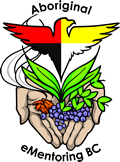 Through Aboriginal eMentoring BC, which started in November, around 50 aboriginal students around the province are spending up to two hours a week with a mentor from a university health science program.
Through Aboriginal eMentoring BC, which started in November, around 50 aboriginal students around the province are spending up to two hours a week with a mentor from a university health science program.
But students wouldn’t know their mentors if they passed them in the street because their only communication is online.
“It’s called eMentoring and it’s a new program that uses the Internet to connect aboriginal youth with role models who will provide them with the support, knowledge and confidence they need to succeed in university,” said Jan Gladish, the curriculum helping teacher assigned to the Surrey School District’s literacy and aboriginal education departments.
Aboriginal youth are dramatically under-represented in post-secondary education, particularly the health sciences, which represent some of the fastest growing career tracks in North America. A recent $917,000 research grant awarded to Dr. Sandra Jarvis-Selinger, Assistant Professor in the Department of Surgery, could change all that. Aboriginal eMentoring B.C. is aimed at building post-secondary career pathways for aboriginal youth. Funded by the Canadian Institute for Health Research, the program is a partnership between the UBC Faculty of Medicine, UBC eHealth Strategy Office, Okanagan School District, Surrey School District, Adams Lake Band, Akisq’nuk First Nation and Sto:lo Nation.
The program works by matching aboriginal youth with post-secondary health science students from UBC (Vancouver and Okanagan campuses) who communicate with them in a structured online environment for up to two hours a week for a minimum of one school year. Mentors aim to provide aboriginal students with the knowledge, confidence and skills to stay in school, create the potential to enter post-secondary education and ideally choose a career path in the health sciences.
“Providing opportunities for kids to see themselves at university is especially important for first-generation kids – kids who may be the first in their family to graduate from high school or to attend post-secondary,” says Gladish. “Mentors can help kids move toward that goal through a series of activities, conversations and events intended to develop their awareness and pique their interest in pursuing post-secondary school.”
Katherine Wisener, project manager of eMentoring at the eHealth Strategy Office in UBC’s Faculty of Medicine, says the eMentoring project is essentially an early intervention program. “It’s often the case that aboriginal students finish high school and then look into a health career only to realize they’ve dropped a course or don’t have the credits, effectively shutting those doors,” explains Wisener. “This is about instilling that dedication among students to push through, work hard and keep those doors open.”
Mentors and mentees connect through a monitored online platform. The curriculum is largely self-paced, but the topics are structured to provide the most support to aboriginal students who want to attend college and university after graduation. Topics include setting academic goals, exploring post-secondary opportunities, seeking financial aid, overcoming obstacles, time management and even writing a resume. Mentors have been rigorously screened by UBC, and have been given additional training in child safety, child development, activity planning and aboriginal culture and history.
eMentoring seeks to target students early enough to influence their initial high school course choices. “It can be too late in Grade 12,” says Sandra Jarvis-Selinger, “If they’ve decided that biology and chemistry aren’t their cup of tea, they probably haven’t kept their options open for a career in medicine. eMentoring is really about giving those options back, keeping the potential open and offering these students the chance to positively impact their lives. It’s also about changing the way academic institutions think about access to health science programs by making it more about real opportunities for success.”
Learn more about the program at www.ementoringbc.com
Or watch a video on eMentoring here.